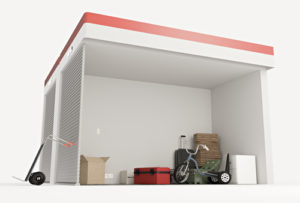
Rent-to-own storage sheds have become a popular solution for individuals and businesses seeking additional storage space without the immediate financial burden of an outright purchase. This flexible arrangement allows users to benefit from an off-site storage solution while retaining the option to own the shed outright at the end of the rental term. Given their rising popularity, it’s essential for potential renters or buyers to understand the intricacies of rent-to-own agreements, including average costs, how to find the best deals, and the associated pros and cons. This blog aims to equip you with top tips for navigating the rent-to-own storage shed market, ensuring you make an informed and financially prudent decision.
Understanding Rent to Own Storage Sheds
Rent-to-own storage sheds are essentially lease agreements with an option to buy at the end of the term. This arrangement is particularly appealing to those who need immediate storage solutions but may not have the funds for an outright purchase or prefer not to use traditional financing options.
Typically, the process involves selecting a storage shed, agreeing on a monthly payment plan, and at the end of the agreement, having the option to purchase the shed, often with a portion of the rental payments going toward the purchase price.
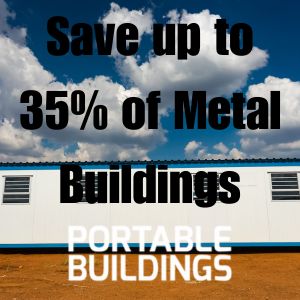
Target Audience for Rent-to-Own Sheds
These storage solutions cater to a wide range of users, from homeowners needing extra space for belongings to businesses requiring additional inventory storage. They’re also a viable option for individuals with fluctuating storage needs or those working on temporary projects.
Average Costs for Rent to Own Storage Sheds
Rent-to-own storage sheds present an attractive option for acquiring storage space with manageable monthly payments. However, understanding the financial commitment involved is crucial for making an informed decision.
Factors Affecting Costs
Several factors influence the cost of rent-to-own storage sheds, including:
- Size and Material: Larger sheds or those made from premium materials such as high-quality wood or metal tend to cost more. Smaller, plastic or vinyl sheds are on the lower end of the price spectrum.
- Features and Customizations: Additional features such as windows, shelving, or custom doors can increase the price. Basic models without these add-ons are more affordable.
- Location: Rental costs can vary significantly depending on the region. Areas with higher real estate prices tend to have higher rent-to-own shed costs.
- Duration of the Contract: Longer contracts may offer lower monthly payments but could result in higher total costs due to accumulated interest or fees.
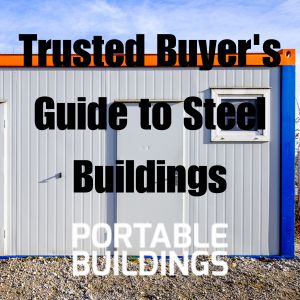
Comparison with Outright Purchase and Traditional Storage Options
Comparatively, the outright purchase of a storage shed requires a significant upfront investment but eliminates ongoing monthly payments. In contrast, traditional storage units involve monthly fees without the option of ownership, which might lead to higher long-term costs without the benefit of asset accumulation.
Average monthly payments for rent-to-own sheds can range from $50 to $300, depending on the factors mentioned above. The total cost at the end of the term can be significantly higher than the shed’s retail value, emphasizing the importance of carefully considering the financial implications before entering into an agreement.
Finding Deals
Securing the best deal on a rent-to-own storage shed requires diligence and research. Here’s how you can find the most advantageous offers:
How to Research and Compare Deals
- Online Research: Start by exploring websites of companies offering rent-to-own sheds in your area. Many sites provide detailed information on pricing, sizes, and options.
- Local Dealers: Visit local dealers to see the sheds in person and discuss pricing and terms directly. This can also give you a better sense of the shed’s quality and the company’s customer service.
- Comparison Tools: Use online calculators and comparison tools to estimate total costs over time, considering both the monthly payments and any final purchase options.
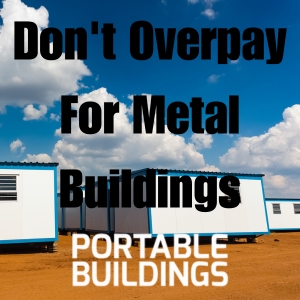
Tips for Negotiation and Saving Money
- Negotiate Terms: Don’t hesitate to negotiate the terms of the agreement, including the monthly payment amount, term length, and interest rates, if applicable.
- Look for Promotions: Dealers often run promotions or discounts, especially during off-peak seasons or around holidays.
- Consider Pre-Owned Options: Some companies offer pre-owned or returned sheds at a lower cost. These can provide excellent value, though it’s important to inspect the shed thoroughly for any issues.
Pros and Cons of Investing in Storage Sheds
Asset Accumulation Over Time
- Unlike traditional rental storage units, rent-to-own sheds allow for the accumulation of equity in a tangible asset. Over time, the renter can become the owner of the shed, which can then be used as needed, sold, or even rented out to others.
Flexibility in Financial Planning
- Rent-to-own agreements offer the flexibility of low monthly payments instead of a significant upfront purchase cost. This can be particularly advantageous for individuals or businesses with limited liquidity but immediate storage needs.
No Credit Check or Minimal Credit Requirements
- For individuals concerned about credit checks, rent-to-own options often require none or have minimal credit requirements. This opens up opportunities for those who might not qualify for traditional financing methods to still acquire a storage shed.
Adaptability to Changing Needs
- As personal or business needs evolve, the storage shed can either be purchased outright, returned, or upgraded through the rent-to-own company. This adaptability ensures that the storage solution always meets the current requirements without a long-term commitment.
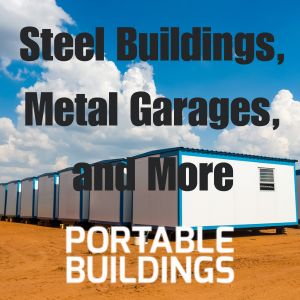
Potential to Improve Property Value
- For homeowners, owning a high-quality storage shed can add value to the property. It’s an attractive feature for potential buyers, offering added storage space that is often sought after in real estate markets.
Cons of Investing in Rent-to-Own Storage Sheds
Higher Overall Cost
- The convenience and flexibility of a rent-to-own arrangement come with a price. The total amount paid over the term of the agreement typically exceeds the cash price of the shed, making it a more expensive option in the long run.
Maintenance and Upkeep Responsibilities
- During the rent-to-own agreement, the responsibility for maintaining the shed usually falls on the renter. This can include repairs, painting, and general upkeep, which adds additional costs and effort over time.
Risk of Loss
- If the renter decides to return the shed before owning it outright or defaults on payments, they lose not only the shed but also all the payments made towards its purchase. This risk requires careful financial planning and commitment.
Contractual Obligations and Fine Print
- Rent-to-own agreements can be complex and may include provisions that are not immediately apparent. It’s crucial for renters to understand all terms, including penalties for late payments, the process for returning the shed, and any other obligations they are agreeing to.
Limited Selection
- The available options for rent-to-own sheds may be limited compared to purchasing outright. Renters might have to compromise on size, materials, or features based on what is available through rent-to-own programs.

Navigating the Decision
Investing in a rent-to-own storage shed is not a decision to be taken lightly. Prospective buyers should consider their long-term financial situation, the potential total cost of the shed, and how it fits into their overall needs. It’s also essential to read contracts thoroughly, understand all obligations, and consider the shed’s value to their life or business.
Advantages of Rent to Own
- Flexibility: Rent-to-own offers the flexibility to return the shed if your needs change without the commitment of a full purchase.
- No Credit Checks: Many rent-to-own agreements do not require credit checks, making them accessible to a wider range of customers.
- Ownership Potential: Unlike traditional storage rentals, rent-to-own provides the option to own the shed outright at the end of the rental term.
Drawbacks of Rent to Own
- Higher Overall Costs: The convenience of monthly payments comes with a price, often leading to higher total costs compared to purchasing outright.
- Legal Considerations: It’s crucial to understand the contract fully, as some agreements may include penalties for early termination or missed payments.
- Maintenance Responsibilities: Renters typically assume responsibility for maintaining the shed during the rental period, which can add unforeseen costs.
Tips for a Wise Decision
Making a wise decision on a rent-to-own storage shed involves more than just evaluating the shed itself. Consider these final tips:
- Ask Questions: Inquire about any unclear terms in the contract, including responsibilities for repairs and maintenance.
- Understand the Contract: Make sure you fully understand the agreement, including what happens if you decide to return the shed or if you miss a payment.
- Assess Your Needs: Consider your long-term storage needs and financial situation. Ensure that the shed size, style, and payment terms align with your requirements and budget.
Rent-to-own storage sheds offer a flexible and accessible option for acquiring additional storage space. However, navigating the market requires a thorough understanding of the costs involved, strategies for finding the best deals, and a balanced consideration of the pros and cons. By approaching this decision with careful research and thoughtful consideration, you can find a rent-to-own shed that meets your needs without undue financial strain. Remember, the key to making an informed decision lies in understanding your long-term storage needs and financial situation, ensuring that you choose an option that aligns with your overall goals and budget.

